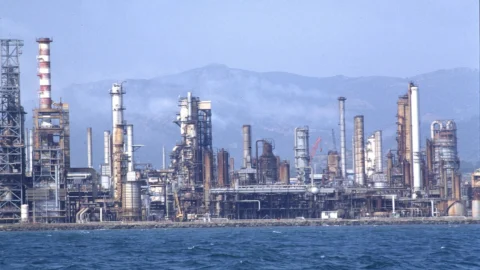Was a 2022 records the year just passed for the Italian wine: exports reached 8 billion euros with an increase of 12 percent on the previous year. As usual, we were preceded by France which recorded 12,5 billion euros of wine exports. The third position was held by Spain many distances long with 3 billion euros thanks to a 6 percent increase in exports of Iberian wine.
If Italian wine navigates the world markets with the wind in its sails this does not mean that they do not appear on its horizon critical issues that you need to know how to manage in time to aspire to certify a share of international leadership.
Clare Soldiers, administrator of the family farm "La Scolca", which made Gavi famous in the world with a marketing policy aimed at abroad, which resulted in an export of over 70% of the company production which manages an area of about 50 hectares planted with Cortese grapes, between Novi Ligure and Gavi that give life to 10 labels and 680 bottles, he has very clear ideas about the future of Italian wine.
We need to think globally and act locally, valuing our territory as much as possible
“To face 2023 in the best possible way which, now more than ever, will be marked by concept of glocal expressed by Zygmunt Bauman in the sense that we are convinced that it is increasingly necessary to think globally and act locally. We want to make the most of the good things our territory offers, but with the awareness that it is necessary to do so with international strategies in mind".
A philosophy, the glocal one, which according to the managing director of La Scolca must be based essentially on four key principles: sustainability, internationalisation, links with the local area and lifestyle. “Four elements which, connected to each other, give life to a project that will develop over the next few months as far as the Turin company is concerned. And that provides a 4.0 investment plan based on 360° innovation: new bottling line, renewal of agricultural vehicles, new water purification plant, doubling of photovoltaic panels and a space dedicated to wine experiences, also intended for companies for team building activities.
The pandemic and the Russia-Ukraine conflict have conditioned the market: diversifying is essential
As far as internationalization is concerned, Chiara Soldati briefly summarizes the world scenario for what concerns the marketing of wine. "There pandemic and the conflict between Russia and Ukraine represent events that have inevitably changed approaches and modalities". In recent months, La Scolca has worked to maintain its positions on the classic markets, such as the United States, the UK and Germany. But at the same time a policy of penetration into emerging markets such as Azerbaijan, Kazakhstan, Uzbekistan, Thailand, Vietnam but also Central America, Africa, Turkey was launched. “We have been able to detect how, despite the difficult period, the desire for premium wines is growing and there is a great sensitivity towards native vines and a desire to know the territories that those wines express. All elements that distinguish Italian wine production”.
A discourse that somehow closes the circle: sustainability as an ethical commitment, internationalization as a natural outlet for Italian wine, a link with the territory as an essential identifying element and lifestyle, as the Italian way of life enjoys great appeal in all continents.
The CEO then underlined with satisfaction that the company has obtained the internationally recognized FSSC 22000 certification, and the SQPNI brand (National Quality System of Integrated Production) valid at community level. Two fundamental steps, in line with a perspective aimed at a more modern and sustainable vision of the agricultural sector. In fact, the certifications constitute a guarantee towards commercial partners and the final consumer and testify to the ethics, quality and transparency which are the basis of the business model of the famous Piedmontese winery.





